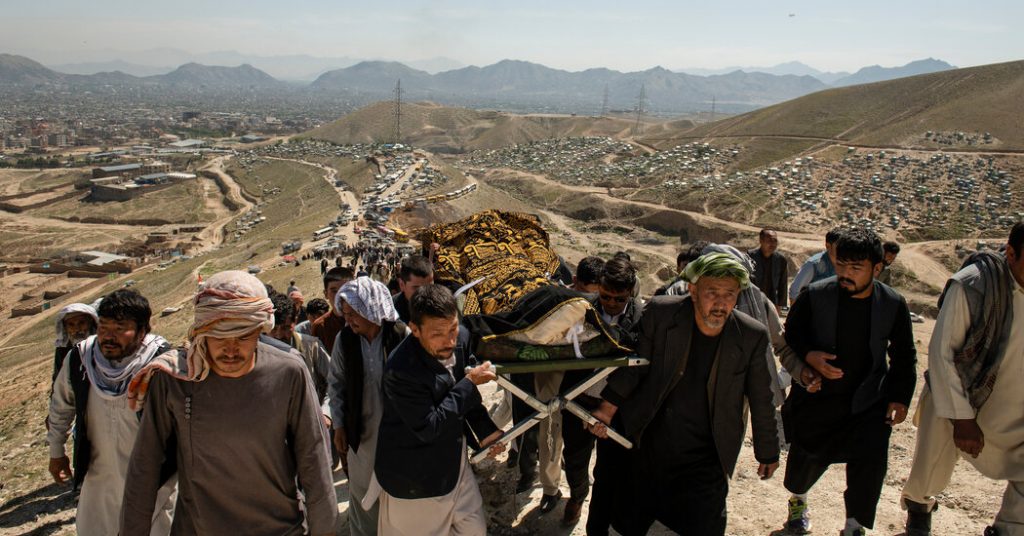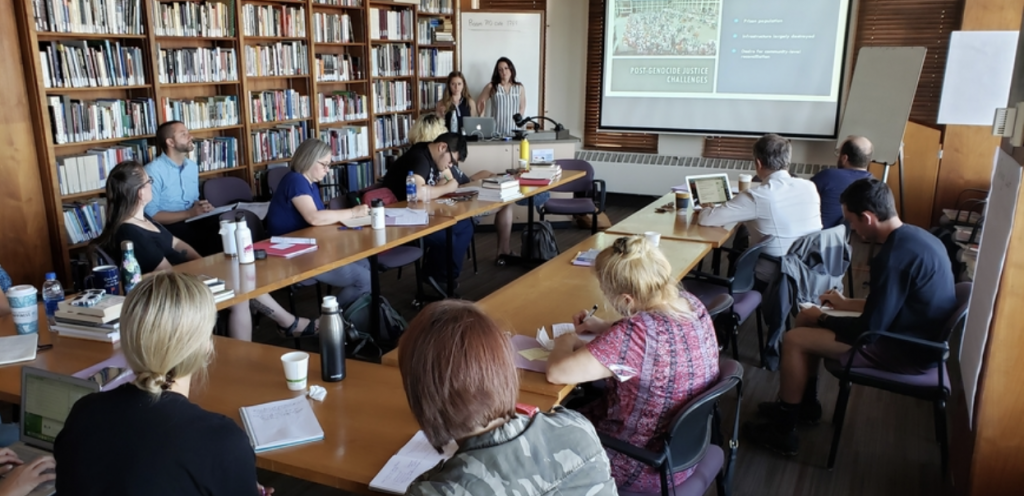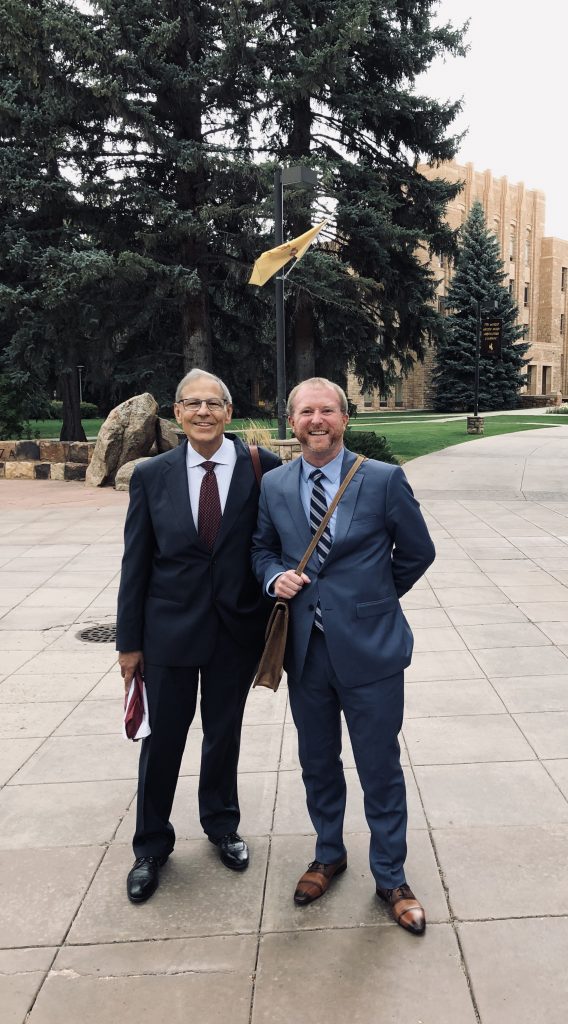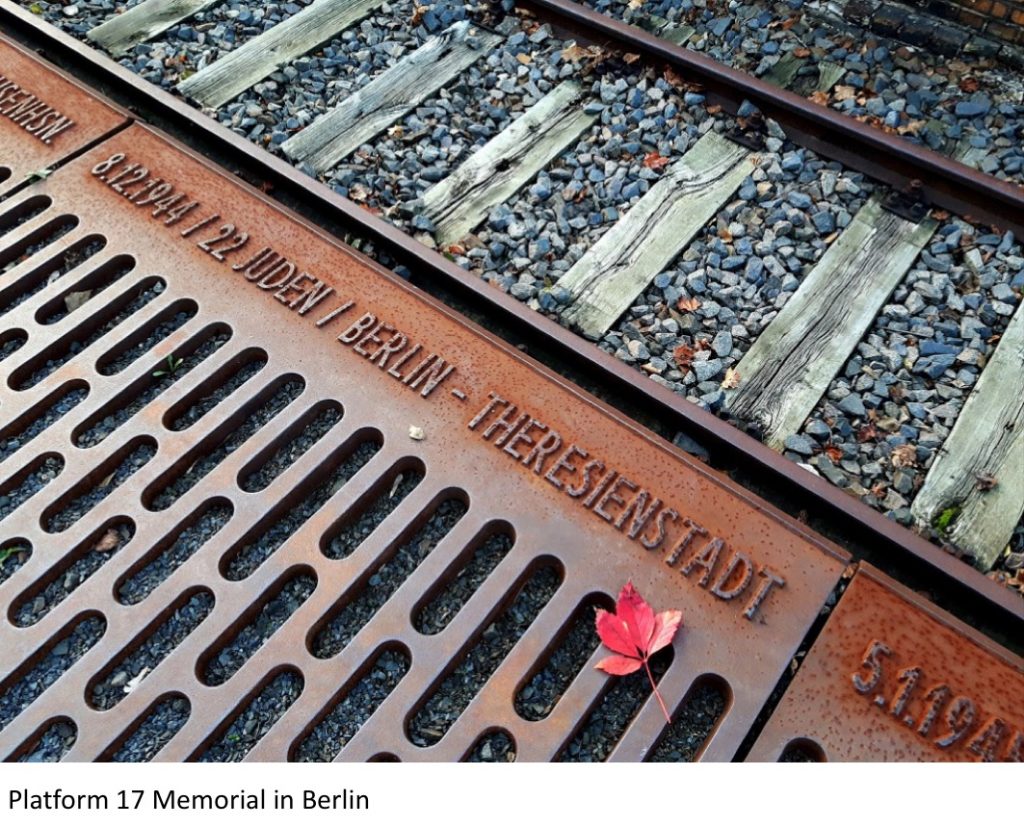After 20 years, the Taliban have returned to power in Kabul. Two decades of progress for women and human rights are certain to be completely demolished. One group, in particular, the Hazaras, are especially fearful for what the future holds.

After 20 years, the Taliban have returned to power in Kabul. Two decades of progress for women and human rights are certain to be completely demolished. One group, in particular, the Hazaras, are especially fearful for what the future holds.


The Minnesota Department of Education (MDE) recently released the second draft of proposed social studies standards. The draft, part of a mandatory process to review teaching and learning standards every ten years, will not only secure but significantly expand Holocaust and genocide education across the state for years to come.
The months-delayed second draft follows the release of a controversial first draft in December 2020, which did not mention Holocaust and genocide education. The decision meant not carrying through the three existing references from the current social studies standards, which were adopted in 2011.
Eric D. Weitz’s untimely passing on Thursday, 1 July, sent shockwaves throughout the academic community. A distinguished professor of Modern European History at City College of New York, Eric was among the foremost researchers on human rights, the Armenian Genocide, Nazi Germany and the Holocaust, settler-colonial genocide in German Southwest Africa, and Weimar Germany.

Nearly five years ago, the Center published two blog articles, Another Genocide Declaration: This One Matters, and Berlin’s Message to Ankara, detailing the importance of Germany’s recognition of the Armenian genocide. Then, Germany had just become the thirteenth country to formally declare the targeted destruction of the Armenian population of the Ottoman Empire as genocide. To many scholars, Germany’s recognition of the genocide was the most important official recognition, not only because of Germany’s support for the Ottoman military but also because the Armenian genocide paved the way for the horrors of the Holocaust just over two decades later.
Beyond that, back in 2016, it was nearly inconceivable for the United States to recognize the Armenian genocide in any meaningful sense. Several Presidential candidates campaigned on the promise of recognition, only for the idea to be eschewed by the realities of contemporary geopolitics. Finally, in October 2019, the House of Representatives passed a nonbinding resolution formally acknowledging the genocide. In December, the Senate followed suit. Praising the vote, Minnesota Governor Tim Walz tweeted, “the Armenian Genocide is historical fact, and the denial of that fact is a continuation of the genocide.”
Last Friday, Minnesota nearly became the first state in the country to recognize the Khojaly Massacre as a genocide. A last-second amendment from Governor Walz’s office, however, changed the language in the declaration to massacre, mirroring language found in an earlier declaration Minnesota passed in 2016. In all, 24 states have passed resolutions recognizing the Khojaly events as a massacre.
In February 1992, in the midst of the First Nagorno-Karabakh War, Armenian forces took the Azeri-held town of Khojaly. Human Rights Watch chronicled the killings of Azeri civilians, with estimates between 200 and 1,000 Azeris being murdered by Armenian forces. While there is a general consensus of war crimes committed against the citizens of Khojaly, scholars stopped short of calling it genocide outside Azerbaijan or its close ally, Turkey (Armenia, for its part, continues to deny wrongdoing in Khojaly, blaming Azeri militia embedded with civilians).
As a queer activist and researcher from Turkey, I am interested in understanding how queer lives endure in post-genocidal Turkey. I dwell on the Armenian Genocide and how the denial of the genocidal past is adapted by the sovereign Turkish state as a form of governing strategy (Savelsberg 2021, Suciyan 2017). More specifically, I contemplate how the circulation of denial is also related to the endurance of heteronormativity in which the broader practices of sexual violence, forced religious conversion, and orphanage emerge as critical issues (Ekmekçioǧlu 2015, Maksudyan 2015).
I hope to examine how the dissolution and disruption of Armenian families are linked to the reproduction of normative gender relations and the endurance of violence. By bringing queer and Armenian communities together, I concomitantly examine post-genocide, Armenians, and queer as bounded livelihoods in which the production of gender & sexuality and ethnicity are not necessarily separate categories but vividly intersected.
In August 1862, Minnesota erupted in unprecedented violence. The Dakota, a people that had been confined to two strips of land along the Minnesota River Valley through a series of treaties, began attacking white settlements in the region. Within days, New Ulm had been almost completely burned down and an American Army outpost had been besieged. Just as quickly as the fighting began, it was over; Lincoln, in the midst of leading the Union through the American Civil War, sent Federal troops into Minnesota to put down the uprising. Retaliation was swift and brutal: women, children, and elderly Dakota were sent to an internment camp below Fort Snelling while almost 400 men were tried by a hasty military tribunal for crimes committed during the war. Ultimately 38 were hanged before the end of 1862 in Mankato. All Dakota would be removed from the state in 1863.
At the Center for Holocaust and Genocide Studies, we are both deeply saddened and profoundly angered by the brutal, horrific murder of George Floyd by the Minneapolis Police. In the face of the continued murder of Black people in Minnesota, across the country, and in many places around the world, we reaffirm our commitments to racial justice and equity.
We recognize that the Twin Cities of Minneapolis and St. Paul and the State of Minnesota were established through the theft of Dakota and Anishinaabe land and the genocide of the Dakota and Anishinaabe peoples. Indeed, the first sins of Indigenous genocide and the enslavement of African Americans laid a foundation for a society built upon and maintained through violence and white supremacy. While it is rare in academia and education that the Transatlantic slave trade or the institutions and legacies of slavery and segregation in the United States are termed genocide, noted genocide scholar Adam Jones wrote that arguments against the label genocide have too often become a tool for denial, “serving to deflect responsibility for one of history’s greatest crimes.” Last week, civil rights attorney Ben Crump wrote in the Washington Post, “And then we hear that nagging thought that keeps coming back and demanding us to face it: How many more deaths have not been captured on video? How long has this been going on without witnesses or documentation? Is this an outlier or is this endemic? And it starts to feel like genocide.” We recommend Crump’s 2019 book, Open Season: Legalized Genocide of Colored People.
This year’s Yom HaShoah, Holocaust Remembrance Day, is an especially important anniversary. In January, we marked 75 years since the liberation of the Auschwitz-Birkenau death camp. Since then, through our programs on and off campus, and in collaboration with the Center for Jewish Studies, we were able to reflect on the scope of the destruction of European Jewry but also on the heroic resistance and the resiliency of the survivors.

On the morning of August 5th, 2019, 8 million residents of Kashmir awoke to severed cellphone, landline, internet, and cable television services. Days before, 40,000 Indian troops were deployed into Kashmir, in addition to the hundreds of thousands already stationed in the region. Tourists, non-resident students, and Hindu pilgrims were forced to leave. Kashmiris knew that something catastrophic lay in the near future. And something catastrophic did: on August 6th, the BJP, India’s ruling Hindu-nationalist party, revoked Article 370, stripping Kashmir of the autonomous status it had held since 1954[1]. News outlets across the globe rushed to cover the flashpoint crisis, with Aljazeera going so far as to release a page that offered daily updates on the situation[2].